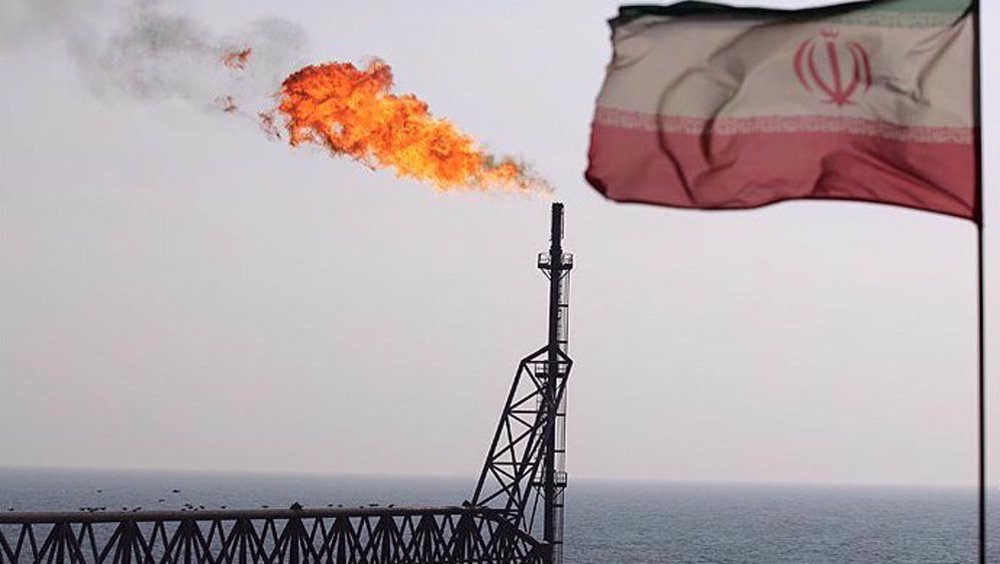Alwaght- Iran soon will begin drilling at the Arash natural gas field shared with Kuwait and Saudi Arabia after the two Arab states signed a document to build the offshore reservoir without Tehran's participation, Iranian Minister of Petroleum said.
"Comprehensive studies of the Arash joint field have been completed by drilling exploration wells and conducting seismic surveys," Javad Owji tweeted late on Monday.
"With the installation of the jacket , the drilling operation in the field will begin soon," he added.
Last week, Kuwait said it planned to extract 1 billion standard cubic feet per day of gas and 84,000 barrels per day of condensate from the field under an agreement signed with Saudi Arabia. Iran dismissed the agreement as “illegal”, saying it breached their discussions to build the field together.
Owji said, "Although we want to negotiate and cooperate for development of joint fields, unilateral measures will not prevent the implementation of the project."
Iran began talks with Kuwait in 2000 to develop the field but no agreements were reached. In 2013, the National Iranian Oil Company said it had jackets and rigs ready to develop the field and that if talks did not lead to a development plan, it would have the right to go ahead alone.
On Saturday, the Ministry of Petroleum said parts of the Arash gas field which Kuwait and Saudi Arabia call al-Durra are located in areas between Iran and Kuwait whose water borders have not yet been defined.
"The Islamic Republic of Iran also reserves the right to exploit the gas field,” it said in a tweet in reaction to the Kuwait Petroleum Corporation’s statement on its bilateral agreement with Saudi Arabia.
Iran’s Foreign Ministry spokesman Saeed Khatibzadeh said: “The recent move by Kuwait and Saudi Arabia in the framework of a cooperation document is contrary to what was previously discussed, and illegal.”
“Any action on the operation and development of this field should be in the coordination of all three countries,” he added.
Ahmad Asadzadeh, deputy petroleum minister for international and commercial affairs, said Sunday Iran believes shared fields should be carried out jointly, adding this would lead to the strengthening of economic ties among the countries.
“Even if the border is not demarcated, the field can be developed jointly using internationally tested models," he said. “The Ministry of Petroleum declares its readiness to negotiate in this regard."
Iran, Asadzadeh said, had delayed developing the shared field in anticipation of a decision on the demarcation of the border with Kuwait.
"But given that the other side, regardless of the previous talks, is unilaterally moving to develop the field, there is no reason for delay," he said.
As a result, "the Ministry of Petroleum has made necessary preparations and carried out studies to develop and exploit the shared field of Arash", he added.
Arash was discovered in 1962 in the Persian Gulf with around 13 trillion cubic feet of natural gas.
Some 23 Iranian hydrocarbon fields lie in border areas and are shared between Iran and adjacent countries, including Kuwait, Iraq, Qatar, Bahrain, the UAE, Saudi Arabia and Turkmenistan.
Most of Iran’s oil and gas fields lie in a belt running along its maritime boundary in the Persian Gulf and the foothills of the Zagros Mountains – an extensive folded zone which is geologically the result of the Arabian plate's collision with the central Iranian plateau.
The collision has trapped thick layers of ancient limestone and sandstone and turned them into some of the world’s biggest oil and gas accumulations.
The Zagros basin covers more than 550,000 square kilometers, stretching from Turkey and Syria through the Iraqi Kurdistan into Iran where its sediments are ideally up to 12,000 meters thick.



























